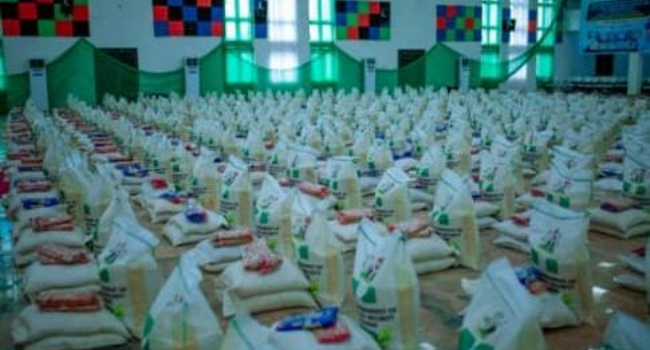The National Emergency Management Agency (NEMA) has delivered a substantial quantity of grains, amounting to 1,528.2 metric tonnes, to aid the residents of Jigawa State. This initiative is part of a broader effort by the Federal Government to alleviate the growing food crisis in the country. In a statement released on Monday via their official account on X (formerly Twitter), NEMA highlighted that this distribution was sanctioned by President Bola Tinubu and is being managed under the oversight of the Federal Ministry of Agriculture and Food Security.
This effort is part of a larger, nationwide initiative aimed at supporting vulnerable populations across Nigeria’s 36 states and the Federal Capital Territory. The grains allocated to Jigawa State are drawn from the National Strategic Reserve, which holds 42,000 metric tonnes of assorted food commodities earmarked for distribution to those in need.
 NEMA’s statement emphasized the significance of this initiative, noting that it is a critical step in fulfilling the government’s commitment to ensuring food security during these challenging times. The agency is currently overseeing the distribution of Jigawa State’s share of these vital resources.
NEMA’s statement emphasized the significance of this initiative, noting that it is a critical step in fulfilling the government’s commitment to ensuring food security during these challenging times. The agency is currently overseeing the distribution of Jigawa State’s share of these vital resources.
Specifically, the grain allocation to Jigawa State includes 594 metric tonnes of maize, equating to 11,880 bags; 691.2 metric tonnes of sorghum, equivalent to 13,824 bags; and 243 metric tonnes of millet, which translates to 4,860 bags. These grains are set to be distributed across all local government areas within the state to ensure that the aid reaches those most in need.
The distribution of these grains is part of a broader strategy announced by the Federal Government aimed at cushioning the impact of the ongoing food crisis in Nigeria. The decision to release 42,000 metric tonnes of grains at no cost underscores the government’s commitment to mitigating hunger and ensuring that vulnerable populations have access to basic food supplies.
The situation in Nigeria has become increasingly dire, with various factors such as inflation, climate change, and security challenges exacerbating food insecurity across the country. In response, the government has sought to tap into the National Strategic Reserve, a critical resource designed to provide emergency food relief during times of crisis.
NEMA’s efforts in coordinating and managing the distribution of these grains are crucial in ensuring that the assistance reaches those who need it most. The agency’s role in the logistics and oversight of the operation reflects the broader government strategy of providing targeted aid to mitigate the effects of food shortages.
As the grains are distributed throughout Jigawa State, local leaders and stakeholders have praised the initiative, acknowledging that it will provide much-needed relief to countless families struggling to make ends meet. The equitable distribution of these resources across all local government areas is seen as a vital measure to ensure that the aid is not concentrated in a few regions but is spread across the state to benefit as many people as possible.
However, this initiative, while significant, is part of an ongoing challenge that requires sustained effort. Food security in Nigeria remains a complex issue, influenced by a myriad of factors that go beyond immediate relief efforts. Long-term solutions will need to address the root causes of food insecurity, including agricultural productivity, infrastructure development, and economic stability.
For now, the delivery of these grains to Jigawa State represents a tangible effort by the government to respond to the urgent needs of its citizens. As these grains make their way to local communities, they bring with them not just sustenance, but also a glimmer of hope for those who have been hardest hit by the current food crisis. The government’s commitment to continuing these efforts is crucial in ensuring that all Nigerians have access to the food they need, regardless of the challenges that lie ahead.




